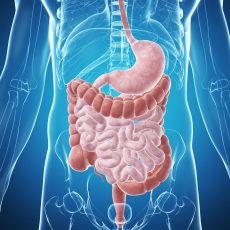
Your small intestine is part of your digestive system. It is a long tube that connects your stomach to your large intestine. Intestinal cancer is rare, but eating a high-fat diet or having Crohn's disease, celiac disease, or a history of colonic polyps can increase your risk.
Possible signs of small intestine cancer include:
- Intestinal Cancer (National Library of Medicine)... that connects your stomach to your large intestine. Intestinal cancer is rare, but eating a high-fat diet ... and the area around it can help diagnose intestinal cancer and show whether it has spread. Surgery is ...
- ... erythematosus , and Sjögren syndrome Addison disease Down syndrome Intestinal cancer Intestinal lymphoma Lactose intolerance Thyroid disease Type 1 ...
- Small Intestine Disorders (National Library of Medicine)... can include: Bleeding Celiac disease Crohn's disease Infections Intestinal cancer Intestinal obstruction Irritable bowel syndrome Ulcers, such as peptic ...
- ... Infectious gastroenteritis Lymphangiectasia Lymphoma Small intestinal angioectasia Small intestinal cancer Tropical sprue Whipple disease
- ... spleen that have spread (metastasized) from an original intestinal cancer (carcinoma).
- ... treatment, there may be a significant risk of intestinal cancer.
- ... of food in their diet, or who have intestinal malabsorption problems from cancer or kidney disease. Ascorbic acid is also used ...
- ... Partial or complete blockage of the large bowel (intestinal obstruction). Rectal or colon cancer . Wounds or fistulas in the perineum. This is ...
- ... no blood in the abdomen, no hernias , no intestinal obstruction, and no cancer in any visible organs. The uterus, fallopian tubes, ...
- ... problem that causes bleeding in the stomach or intestinal tract, including: Colon cancer or other gastrointestinal tumors Colon polyps Bleeding veins ...



